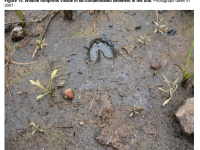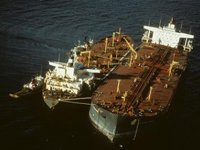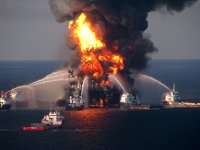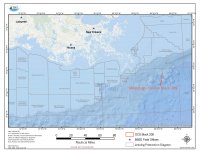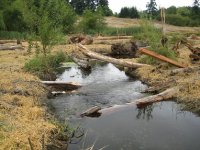Barataria Bay, La. Dolphin Reproduction and Survival Decreased Due to Deepwater Horizon Oil Spill
November 4, 2015
A team of scientists is reporting a high rate of reproductive failure in dolphins exposed to oil from the Deepwater Horizon spill. The team has monitored these bottlenose dolphins in heavily-oiled Barataria Bay for five years following the spill. Their findings, published in the Proceedings of the Royal Society, suggest that the effects of the Deepwater Horizon oil spill will be long-lasting.
The NOAA-led study assessed reproductive success and survival rate for Barataria Bay dolphins. These dolphins had been sampled for health assessments in 2011, and were found to have a high prevalence of lung disease and adrenal dysfunction. Now the team is reporting that only 20% of the sampled dolphins that were pregnant produced viable calves. This is compared to a previously-reported pregnancy success rate of 83% from a similar study in a dolphin population in Sarasota Bay, which was not affected by the spill.
After nearly four years of monitoring, scientists were also able to estimate the survival rate of the dolphins sampled in 2011. They found that only 86.8% of the dolphins survived each year, as compared to other populations where roughly 95% of the dolphins survived. The reduced reproductive potential, along with decreased survival, will have long-term consequences for the Barataria Bay dolphin population.
This study was conducted as part of the Natural Resource Damage Assessment (NRDA) for the Deepwater Horizon oil spill. The complete results from the NRDA are documented in the Draft Programmatic Assessment and Restoration Plan, which is currently out for public comment. We will accept comments on the plan through December 4, 2015.


